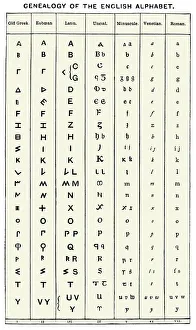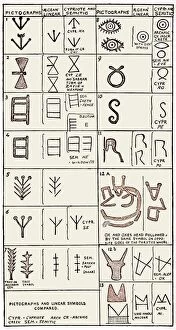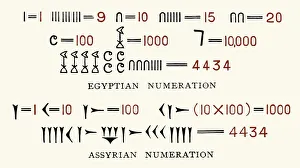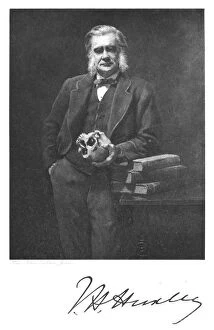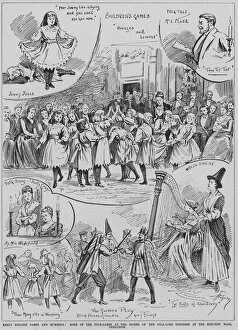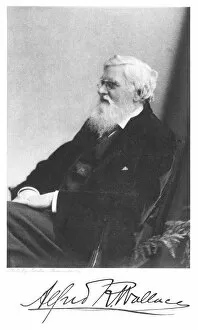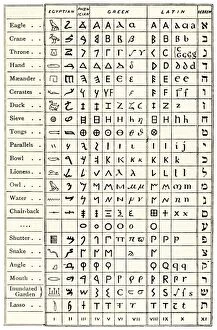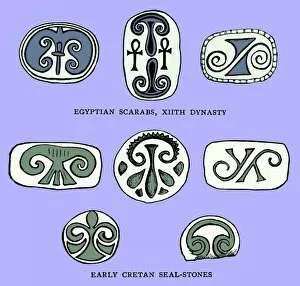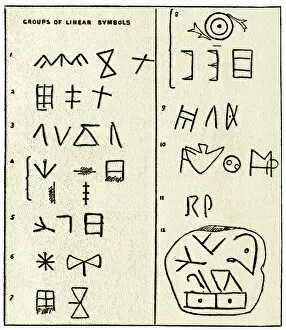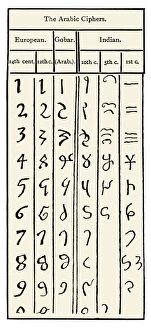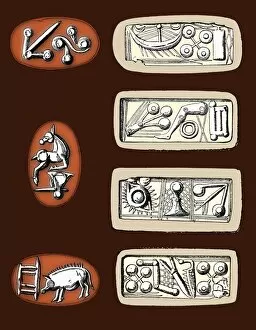Edward Clodd Collection
Edward Clodd: Pioneering Scholar in the Study of Ancient Scripts and Early English Alphabet Development Edward Clodd (1840-1930), an English antiquarian and folklorist
For sale as Licensed Images
Choose your image, Select your licence and Download the media
Edward Clodd: Pioneering Scholar in the Study of Ancient Scripts and Early English Alphabet Development Edward Clodd (1840-1930), an English antiquarian and folklorist, made significant strides in the fields of linguistics, archaeology, and anthropology. His groundbreaking research focused on the development of the English alphabet, Egyptian and Assyrian counting systems, and the performance of early folk English games and mumming at the soiree of the Folklore Congress in 1891. Clodd's work intersected with the scientific community of his time, including Thomas Henry Huxley, the renowned English biologist, and Alfred Russell Wallace, the Welsh-born British naturalist. Together, they compared ancient scripts, such as Egyptian hieroglyphs and Cretan symbols, and deciphered the significance of pictographs and linear script symbols. Clodd's fascination with ancient numerals led him to study the development of Arabic numerals and their influence on mathematics. He also delved into the history of Egyptian scarabs and Cretan seal-stones, unraveling their cryptic meanings and contributing to the understanding of early writing systems. Through his meticulous research and scholarly pursuits, Edward Clodd left an indelible mark on the study of ancient scripts and languages, paving the way for future discoveries and advancements in the fields of archaeology, linguistics, and anthropology.

